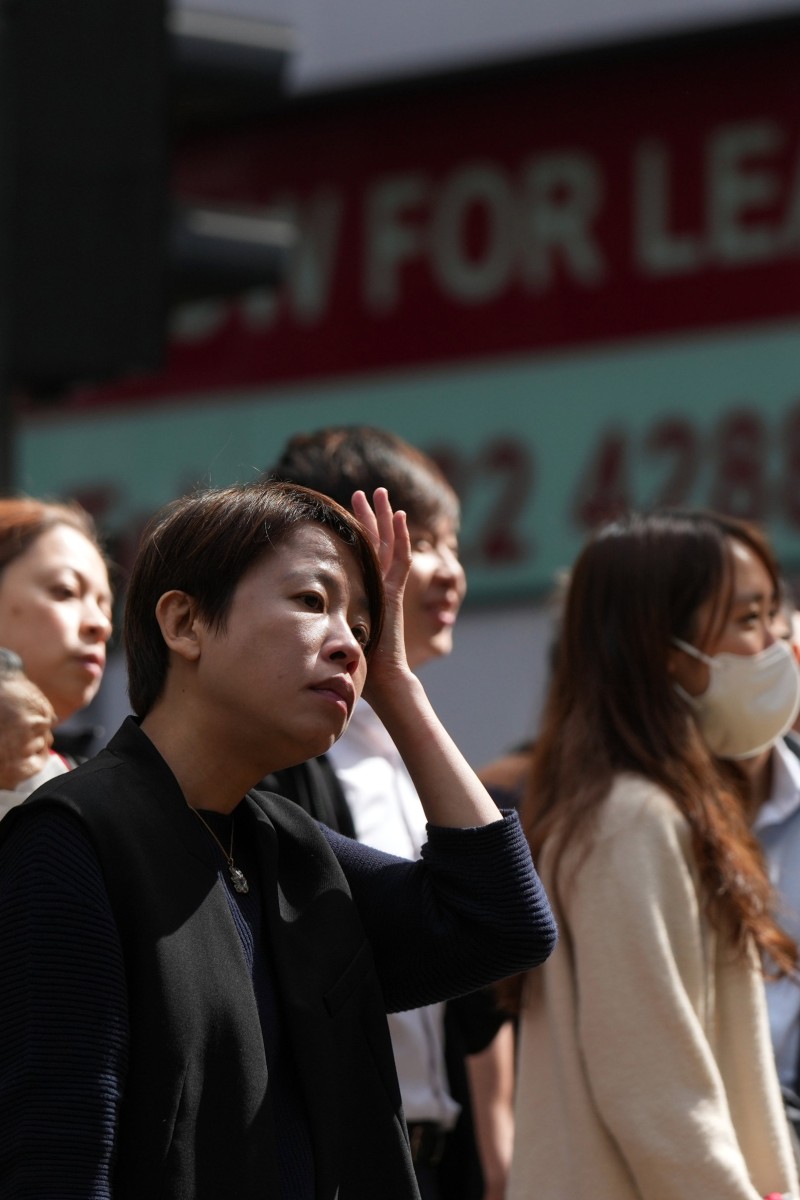
- Professor Celia Chan Hoi-yan said responses from both sexes about their perception of women’s life experiences differed by more than 10%
- Female respondents who believed they were equal to men tended to have better mental health and perception of society
 Men underestimate hurdles women face, University of Hong Kong study finds. Photo: Eugene Lee
Men underestimate hurdles women face, University of Hong Kong study finds. Photo: Eugene LeeA University of Hong Kong (HKU) study has found that men have the tendency to underestimate the hurdles faced by women in several aspects of life, including home safety and access to healthcare.
The study published on Monday, ahead of the International Women’s Day on Friday, also revealed that women who held onto traditional gender roles were more likely to experience a lower quality of life.
Professor Celia Chan Hoi-yan of HKU’s department of social work and social administration said that male and female respondents’ answers about their perception of women’s experience in dealing with a range of aspects of life differed by more than 10 per cent, with men underestimating the difficulties.
“[Men] tend to find women’s situations fine, but when women reflect upon their own experiences, it’s not like what men had imagined,” Chan said.
In the survey that polled 603 men and 684 women, Chan presented 10 statements on women’s access to social resources and their control over their lives, with references from the World Health Organization and UN Women, an entity that is dedicated to gender equality.
Respondents were asked to rate whether it would be easy, neutral or difficult for women to handle various situations, including ones related to access to quality education, employment, healthcare, the influence they had in deciding whom to marry and their sense of safety at home and in public spaces.
5 books by female writers to read ahead of International Women’s Day
Respondents were also asked to comment on how easy it was for women to have control over their own lives and personal finances, buy property in their own name and run for office.
In the biggest difference in perception between the two sexes, 68.2 per cent of men said they believed the quality of women’s healthcare was excellent, but only 52 per cent of women agreed with the statement.
The poll also found a 13.9 per cent difference in the two sexes’ perception of women’s sense of security at home, with more than three-quarters of men saying they believed women felt safe at home, but only 62.4 per cent of female respondents agreeing with the claim.
Chan’s study also found that the more women had bought into gender stereotypes, the poorer their mental health and perception of society had become. But female respondents who believed they were equal to men experienced a better quality of life.
Homemaker and pastry chef Connie Ho, 41, said she had been hesitant to establish her business while being a full-time mother as she found it difficult to detach herself from child-rearing responsibilities.
But after taking a leap of faith, she struck a fulfilling balance between caring for herself and her children.
Deep Dive: How can Hong Kong boost its record-low birth rate?
“I want my kids to see this side of me, that their mother also has to face different challenges and embrace them,” Ho said.
Sisi Liu Pui-shan, director of the Hong Kong Federation of Women’s Centres, said the key to bridging the perception gap lay in enhancing communication between the sexes, suggesting that interactive drama sessions could help improve understanding of the topic.
“[This] will let them think about how they would behave as a man or how they would behave as a woman, and how people would react to you if you are of different genders,” Liu said.
“That can allow people to have first-hand experience of what different sexes would face in different situations.”